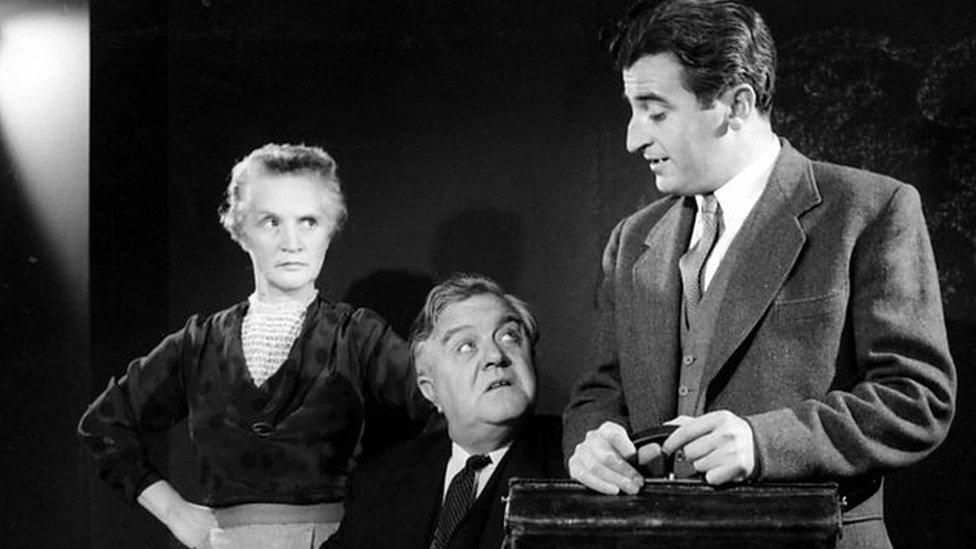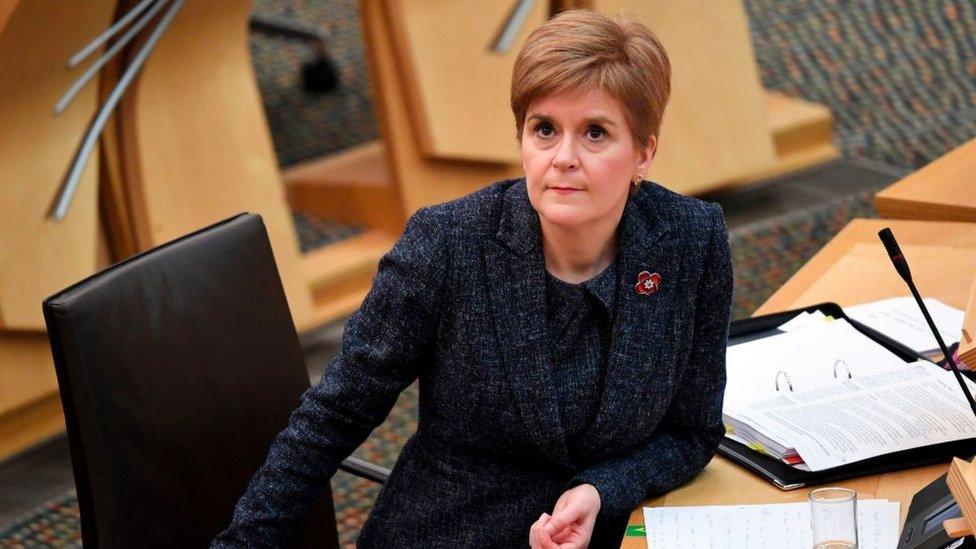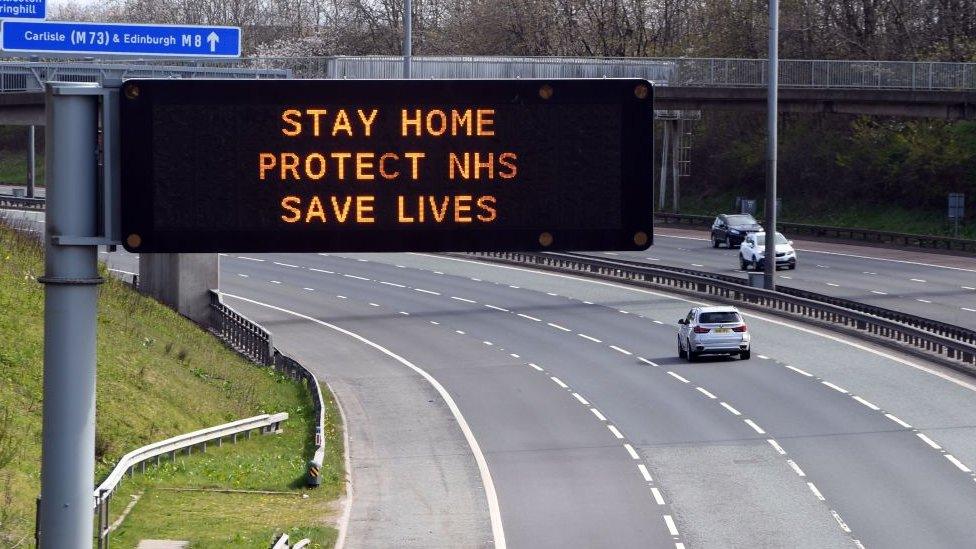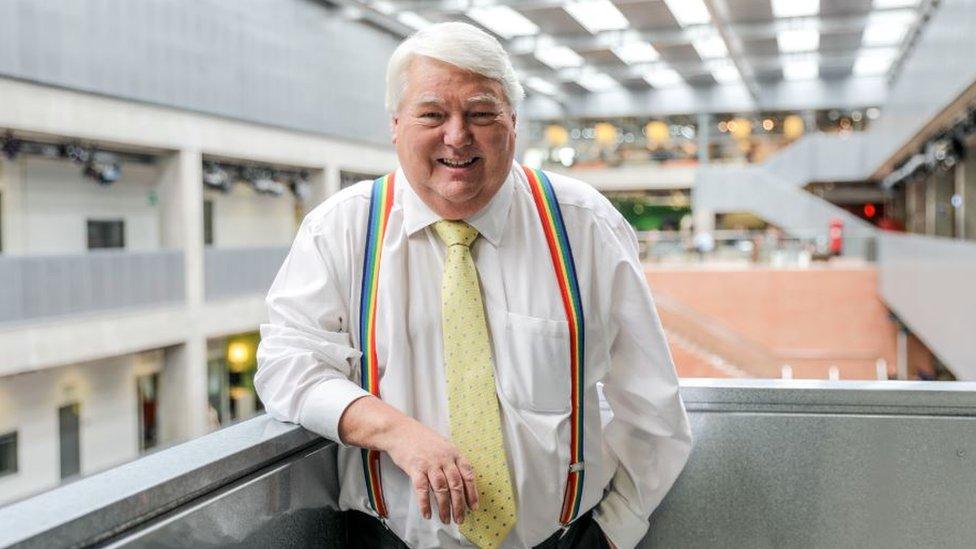Well, ye ken noo!
- Published

Do you remember Dr Finlay's Casebook? The older BBC version, of course. With Andrew Cruickshank and Bill Simpson.
As in Cronin's writing, the TV series was a poignant and occasionally ironic depiction of the trials and tribulations which can sometimes beset the medical profession.
The uncertainty, the doubts, the insecurity - balanced against the need to provide reassurance to anxious and trusting patients. To appear certain when anything but.
There is one notably sharp scene when Dr Finlay (I think) protests that he hadn't known about a particular alteration in the circumstances surrounding a case.
The acerbic Dr Snoddy replies bluntly: "Well, ye ken noo!"
One might now say the same about the compendium of clinical treatment with regard to coronavirus. There is no certainty, not really. Only doubt and disquiet, only imprecision, only despair conjoined with hope.
That is not, repeat not, repeat not, to allocate blame in any way whatsoever to the medical or nursing professions. Nor their governmental funders.
It is to state a fact. Which is that there is a dearth of unalloyed fact, an absence of unchallenged detail.

That is true of the decisions announced by the first minister today anent the new levels of restrictions to be applied to each local authority in Scotland.
It is also true of the impact of hospital transfers upon the prevalence of this hideous plague in Scotland's care homes.
Firstly, those levels. Nicola Sturgeon was, quite rightly and sensibly, determined to stress that her decisions combined science with judgement. They blended statistics with sagacity.
Which, of course, means they have inbuilt uncertainty. To be entirely fair, Ms Sturgeon has made that amply clear throughout her endeavours to counter this virus.
Why, for example, are North and South Lanarkshire in level three when many indicators would place them in level four, the highest? Judgement. That and a calculation that the worst of the present peak may - I stress, may - be beginning to ease.
Political leaders generally like to be certain - or, at least, to appear certain. This virus changes everything. A wise leader exudes uncertainty and imprecision.
That is because even as a decision is being made or promulgated there may be developing circumstances which challenge or modify that verdict.

Another point. The new strategy may well give a degree of structure to the varying constraints. A framework for future moves.
However, that is as far as it goes - as the FM also readily recognises. It is not a solution. It is not a cure. It is not a vaccine. It is a strategy.
And it is one which may change. Which, indeed, makes change intrinsic. The levels are to be reviewed on a weekly basis, deploying statistics and judgement on an iterative basis.
Plus there is the overall warning, bluntly delivered by Ms Sturgeon. She pleaded - actually pleaded - with people to stick to the present rules, especially with regard to constraints on travel.
Otherwise, she noted, Scotland might have to return to full-scale, national lockdown.
Patrick Harvie of the Greens warned that Scotland faced a "Hallowe'en nightmare" from the ending of the UK furlough and the absence of any adequate alternative.
Ms Sturgeon agreed. The Chancellor, had he been present, would have demurred.
Then care homes. If Ms Sturgeon's statement was entirely about the new levels, entirely understandably, then the opposition questions were mostly about yesterday's report on patients transferred from hospitals to care homes.
Again, entirely understandably, from their perspective.
For the Conservatives, Ruth Davidson pursued the FM with clinical determination. She accused Ms Sturgeon of selectively quoting from the report, noting that there had been a palpable risk from the transfer to care homes of patients who had Covid or had not been tested.
She demanded a public inquiry now, as did others. But Ms Sturgeon, quietly and without bombast, argued that it was crucial at this point to focus upon tackling the virus. The time for inquiries was later.
Labour's Richard Leonard said there were multiple problems in care homes; a lack of testing, a dearth of PPE.
Willie Rennie of the Lib Dems contrasted the advice to care home workers to stay away from work if they had symptoms with the decision to transfer into homes hospital patients who were positive.
Ms Sturgeon repeated her point that she had perhaps expected a blunter verdict from the report, with regard to hospital transfers.
But she recalled that medical knowledge had advanced, that the concern in early days had been to prevent the hospital system from being entirely swamped, as appeared a real prospect.
And she added: "There are no words I will ever find to convey the depth of my regret at what happened in care homes."
She said the issue was her first thought in the morning and last concern at night.
The objective was to ensure that lessons were learned. The medical profession - and politics - would concur.
PS: This is my last full day working for the BBC. I have been political editor of BBC Scotland for nearly thirty years and have clocked up 43 years in total in the rough trade of journalism.
I have been more touched than I can express by the compliments paid to my efforts today at Holyrood, including in the chamber. I have just been handed a motion congratulating me, signed by members of all parties.
It has been a privilege, a pleasure and, not infrequently, a source of innocent merriment to cover politics for the people of Scotland and beyond.
Stay safe. And toodleoo-the-noo.

